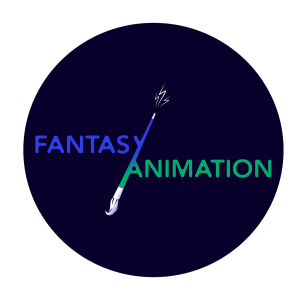
Christopher Holliday is Senior Lecturer in Liberal Arts and Visual Cultures Education at King’s College London (UK). Alexander Sergeant is a Lecturer in Digital Media Production at the University of Westminster (UK), specialising in the history and theory of fantasy cinema. Each episode, they look in detail at a film or television show, taking listeners on a journey through the intersection between fantasy cinema and the medium of animation.
Episodes

Monday Aug 30, 2021
Sub-Saharan African Animation (1966-2013) (with Paula Callus)
Monday Aug 30, 2021
Monday Aug 30, 2021
Episode 81 of the podcast provides an introductory survey of Sub-Saharan African animation, as Chris and Alex plot a pathway through a cross-section of animated fantasies covering a multitude of forms, styles and modes from a number of African countries and territories. Joining them is Dr Paula Callus, Associate Professor in Computer Animation at Bournemouth University and an expert in Sub-Saharan African animation, who has also worked as a consultant and educator on the UNESCO Africa Animated projects in Kenya and South Africa, and who has been involved in projects looking at marginalization and the use of digital technologies (with a focus upon Arts, Activism and Marginalization in Nairobi). Listen as they discuss Moustapha Alassane’s Bon Voyage Sim (1966), the earliest short animation from West Africa with a highly political (and amphibious) comic narrative; the quasi-animated documentary Ng’endo Mukii’s Yellow Fever (2013) that interrogates the implications of skin and race via the theme of hair braiding; Iwa (2009) from Nigerian filmmaker, illustrator and art director Kenneth (Shofela) Coker based on West African ‘tree of life’ myths; the colourful British/Kenyan animated television series Tinga Tinga Tales (2010-2012) based on African folktales and featuring both English and Swahili languages; and the science-fiction allegory Pumzi (2009) from writer and director Wanuri Kahiu. Topics include the cultural and historical specificity of fantasy storytelling and the mapping and remapping of folklore across national borders; animation as itself a medium wrought with competing ‘contexts’ shaping modes of production and reception; core/periphery models of understanding global animation practices and their diversity of visual cultures and heritages; post-colonial legacies and how questions of pastness guide how African animation has been culturally and critically understood; Afrofuturism, Afropessimism and animation’s aesthetics of despair; and how fantasy and animation are systematic tools for the subjective on account of their shared ‘immateriality’.

No comments yet. Be the first to say something!